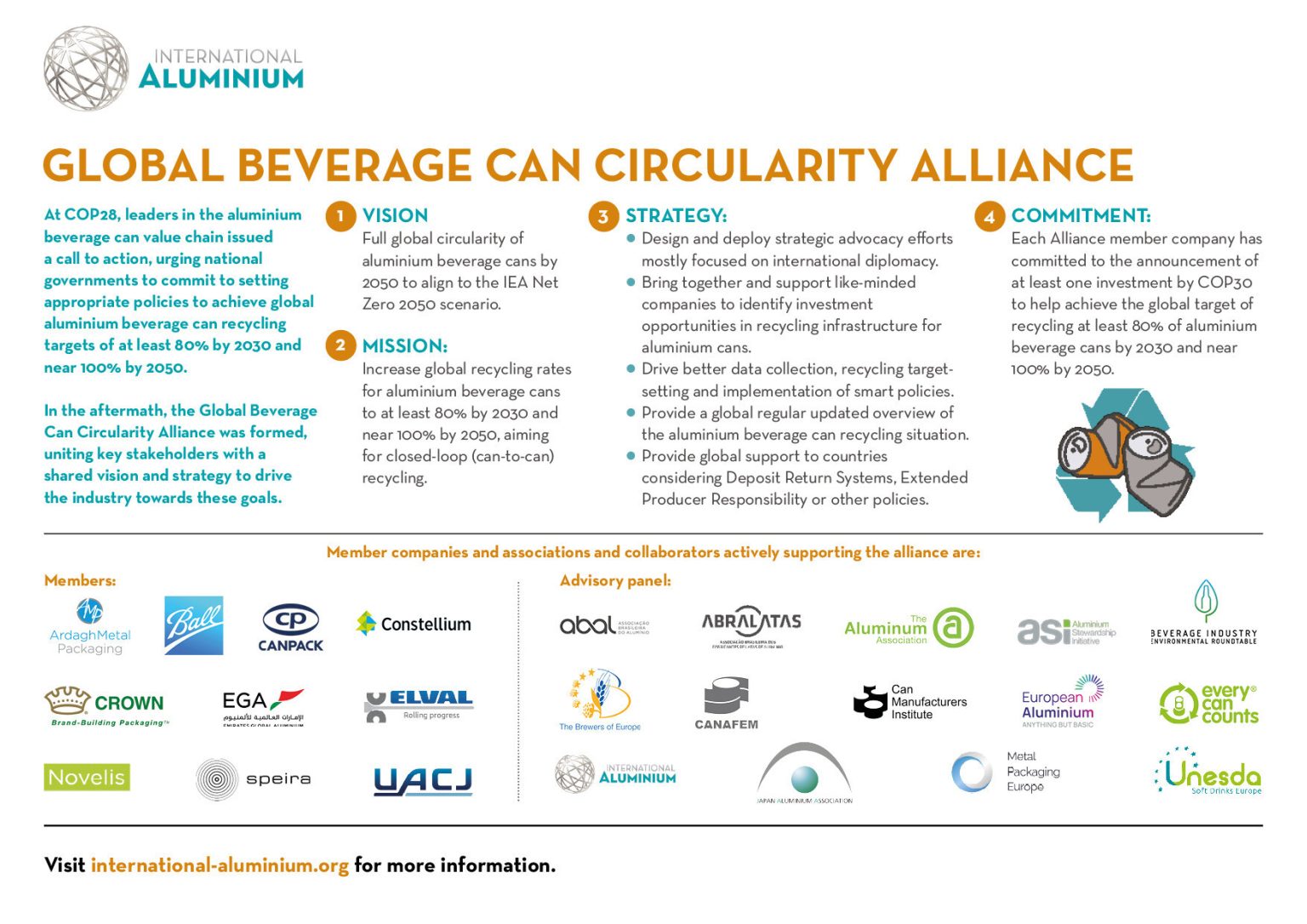The Global Beverage Can Circularity Alliance has launched a comprehensive advocacy plan at Climate Week NYC, aiming to enhance recycling rates for aluminium beverage cans globally. The initiative, formed in the aftermath of COP28, was developed by Roland Berger and outlines actions, investments, and policies tailored to the unique circumstances of 140 countries.
The plan highlights significant opportunities for countries like Colombia, Uganda, and Vietnam, where it is projected that a 90% recycling rate and nearly 100% can-to-can recycling could be achieved within three to ten years. This improvement is contingent on investing in informal recycling sectors that play a critical role in waste management.
In contrast, nations including the United States, UAE, Turkey, and Malaysia are encouraged to adopt measures that could boost recycling rates by as much as 20 percentage points by 2030. Proposed initiatives include incentivising collection through source separation and addressing logistical challenges that currently hinder recycling efforts.
The report also identifies specific regions where collaboration among key stakeholders—brand owners, retailers, and government—could facilitate the implementation of Deposit Return Systems (DRS). Countries like the UK, South Korea, Japan, and Spain are highlighted as prime candidates for such collaborations, which are expected to improve recycling and can-to-can recycling rates significantly.
The implications of enhanced recycling practices extend beyond individual nations. For instance, recycling the aluminium beverage cans currently landfilled in the United States could potentially offset 18% of the country’s aluminium imports. In Florida, which ranks second in aluminium can consumption, a staggering 79% of cans end up in landfills. Meanwhile, Vietnam currently exports 46% of its used beverage cans as ingots for non-can-to-can recycling. Conversely, a voluntary DRS in the UAE has demonstrated positive net system costs in various scenarios.
The Alliance’s strategy encompasses several key elements, including:
- Developing strategic advocacy efforts centred on international diplomacy.
- Assisting companies in identifying investment opportunities for recycling infrastructure.
- Promoting improved data collection, recycling target setting, and the enactment of effective policies.
- Offering global support to nations considering DRS, Extended Producer Responsibility, or other relevant policies.
Supported by the Aluminum Association, Can Manufacturers Institute, and the International Aluminium Institute, the Alliance will host an international strategy event during Climate Week NYC. This event will focus on collaborative approaches to achieving near 100% recycling of aluminium beverage cans by 2050.
As part of their commitment, each member of the Alliance has pledged to announce at least one investment by COP30 to help meet global recycling targets. During its formation at COP28, the Alliance called on national governments to implement appropriate policies aimed at achieving aluminium beverage can recycling targets of at least 80% by 2030 and approaching 100% by 2050.
The Alliance comprises major industry players, including Ardagh Metal Packaging, Ball Corporation, CANPACK Group, Constellium, CROWN Holdings, Elval, Emirates Global Aluminium, Novelis, Speira, and UACJ.




